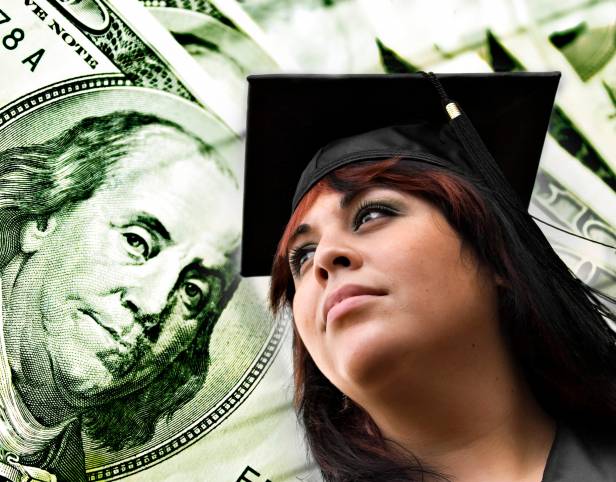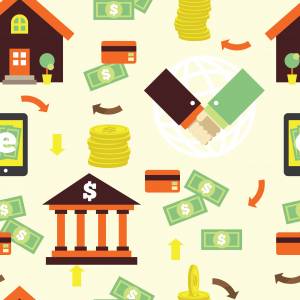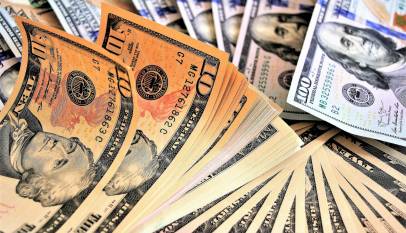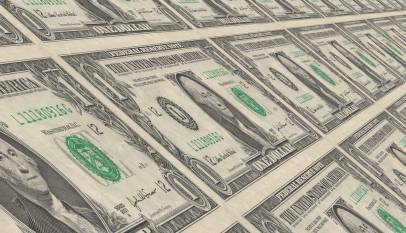Pay Off Student Loans Fast in 2019 – How to?

How to Pay Off Student Loans Quickly: 11 Alternatives
If you’re eager to free yourself of student loan debt, then research these 12 methods to find the best way to repay student loans for you personally.
1) Pay More Than the Minimum
Paying more than the minimum and putting the excess money toward reducing your principal balance is the quickest way to become debt free.
This strategy lowers the remaining amount due and because interest is calculated in your remaining balance, this reduces total interest owed.
It is possible to set up an automatic monthly payment for more than the minimum to ensure you always pay a bit extra. You might also take extra money you earn, such as a year-end bonus, and employ it to your loan balance.
2) Refinance Your Student Loans
Refinancing involves getting a new loan at a lower interest rate. If you maintain payments the exact same or increase them, but decrease your interest , you will spend less in interest in the long run.
You give up significant protections on federal student loans by refinancing, like the ability to utilize an income-based repayment strategy , and you want to qualify for a new loan based on your income and credit rating. However, if you are eligible, the savings from a lower interest rate can be significant.
3) Make Biweekly Payments
Instead of paying your loan monthly whenever the payment is expected, you can divide your required payment in two and cover it every 2 weeks.
This little trick will help you pay off your student loans faster because you are going to end up making 26 payments, which amounts to 13 weeks’ worth of payments rather than the 12 you would have paid with once-a-month payments.
4) Pay Off High-Interest Loans First
Some of your student loans can charge interest at a higher rate than others. If you can pay those more costly loans with higher interest rates off first, you’ll save on your complete interest.
5) Take Advantage of Interest Rate Reductions
While you will want to cover the minimum on every loan you hold, putting any excess money towards your greatest interest loans first helps pay down them faster. That leaves loans along with your reduced interest rates to pay interest for a longer period of time, instead of the loans together with the high rates of interest.
Many student loan services provide a deduction on interest if you set up auto-pay. Some also reduce interest after you have made a certain number of on-time payments.
Interest rate reduction programs vary among lenders, so figure out what your options are with getting your creditor to lower your rate.
6) Create a Budget
Having a budget, you will be more mindful where your money goes and may plan for more money to be put towards paying off student loans early and you’re able to eliminate debt faster.
To create a budget, track your spending to see where you’re going overboard. Budget for necessities first, such as food and rent. After that, work some cash into the budget for extra student loan obligations before allocating to your wants.
When you abide by your budget and also make additional payments every month, your student loan debt will evaporate more quickly.
7) Work for an Employer with Repayment Assistance
Employer student loan repayment support is growing in popularity as a workplace benefit. Employers that offer this benefit pay a certain sum of money towards workers’ student debt every month. Amounts vary, but generally companies offer approximately $100 to $300 monthly.
If you work for an organization that provides this benefit, keep paying the minimums yourself and use the additional funds from the employer to pay down the balance premature.
Many national student loan repayment options, including income-based programs, extend the time to repay your loan.
Even though this can create your monthly payment reduced and help in times of financial hardship, it is best to steer clear of extended plans if your purpose is to repay your loans . You’ll pay more in interest when you stretch out your repayment period, and it’ll take years longer to become debt free than if you stuck with the typical plan.

8) Use Tax Deductions
For many student loan borrowers, you can take a tax deduction of up to $2,500 annually for student loan interest. When you choose this student loan interest tax deduction dependent on the actual quantity of interest you pay, then it reduces your Adjusted Gross Income (AGI), and that means you pay less in taxes.
But if your income exceeds $65,000 as an individual or $140,000 if you’re married filing jointly, you lose part of this deduction. And you lose the entire deduction if you earn at least $80,000 as a person or $130,000 if married filing jointly.
9) Use Extra Cash to Make Lump Sum Payments
When you come into some extra cash such as from a tax refund, do not spend the cash. Instead, place the funds towards paying off your student debt with additional payments or a larger payment. This will reduce the principal balance you owe, therefore it will reduce your interest and also the outstanding amount you need to repay.
The more money windfalls you receive and the more cash you put toward your debt, the faster you’ll be debt free.
10) Use Loan Forgiveness Programs
If you work in a qualifying public service job, you can get your debt forgiven after you create 120 on-time payments. This strategy does require you to cover for about a decade. But, after about a decade, you’ll have your remaining balance, which allows you to become debt free much quicker.
Public Service Loan forgiveness has stringent criteria, so know the rules if you would like the government to forgive part of your debt.
11) You Can Join the Army
Should you join the army with a few student loan debt, you could have the ability to pay it off using the GI Bill or another form of relief, such as military student loan forgiveness.
Typically, you’ll need to devote to a definite number of years at the active military to get help with your debt. Research some of the different programs to find out requirements and explore your choices.
Understanding Your Student Loan Repayment
When you’re dedicated to paying your debt off as soon as you can, it’s helpful to understand your loans so that you’ll know how to prioritize.
As you may see, federal student loans have many positive aspects, such as fixed interest rates and student loan forgiveness options. Due to these advantages, it often makes sense to prioritize paying private student loans if you have multiple student loans. You will want to understand you know how much you owe and make a personalized strategy for your circumstance.
Determine How Much You Owe
To make your student loan repayment program, first list all your debt, including both national and private loans.
You’ll be able to find out your debt balances by using the National Student Loans Data System to spot federal loans. Check your credit report at AnnualCreditReport.com to find your personal loans.
Contact every creditor to discover the interest rate and outstanding balance, and make a list of all you owe.
Additionally, list all your income coming in each month, as well as your expenditures. This will give you an notion of how much extra money you may put on your student loan debt.
Pick which of your student loans to send additional cash to so you can get those paid off whenever possible. Typically, you should focus on:
High-interest loans first
Personal loans before federal loans.
By paying off your highest interest private loans , then low interest personal loans, then federal loans, you are going to make the most efficient use of your money.
Research Federal Repayment Plan Options
Finally, when you’re attempting to repay student loans quickly, it is helpful to comprehend repayment plan choices. For national loans, choices include:
A Typical repayment plan that includes fixed payments and allows you to repay your loans in 10 years
A graduated repayment plan, which Permits You to Begin with lower payments that gradually increase as your income rises
Extended repayment plan, which will be available for specific borrowers and allows you to repay your loans over Quite a While period
Income-driven repayment plans, which limit payments in a fraction of monthly earnings
The standard repayment plan lets you repay your debt more quickly, so it may be the best choice if that is your goal.
But if you are attempting to pay off private loans first, you may want to opt for a plan that allows lower monthly payments — like a graduated plan — so you’ve got more money to put toward private loans. After your private student debt is paid, you are able to switch back to the standard plan and raise your payments to receive those federal loans paid.
By being strategic about how you pay off your debt, you can pay off your student loans much faster so that you won’t have student debt considering your finances.





















